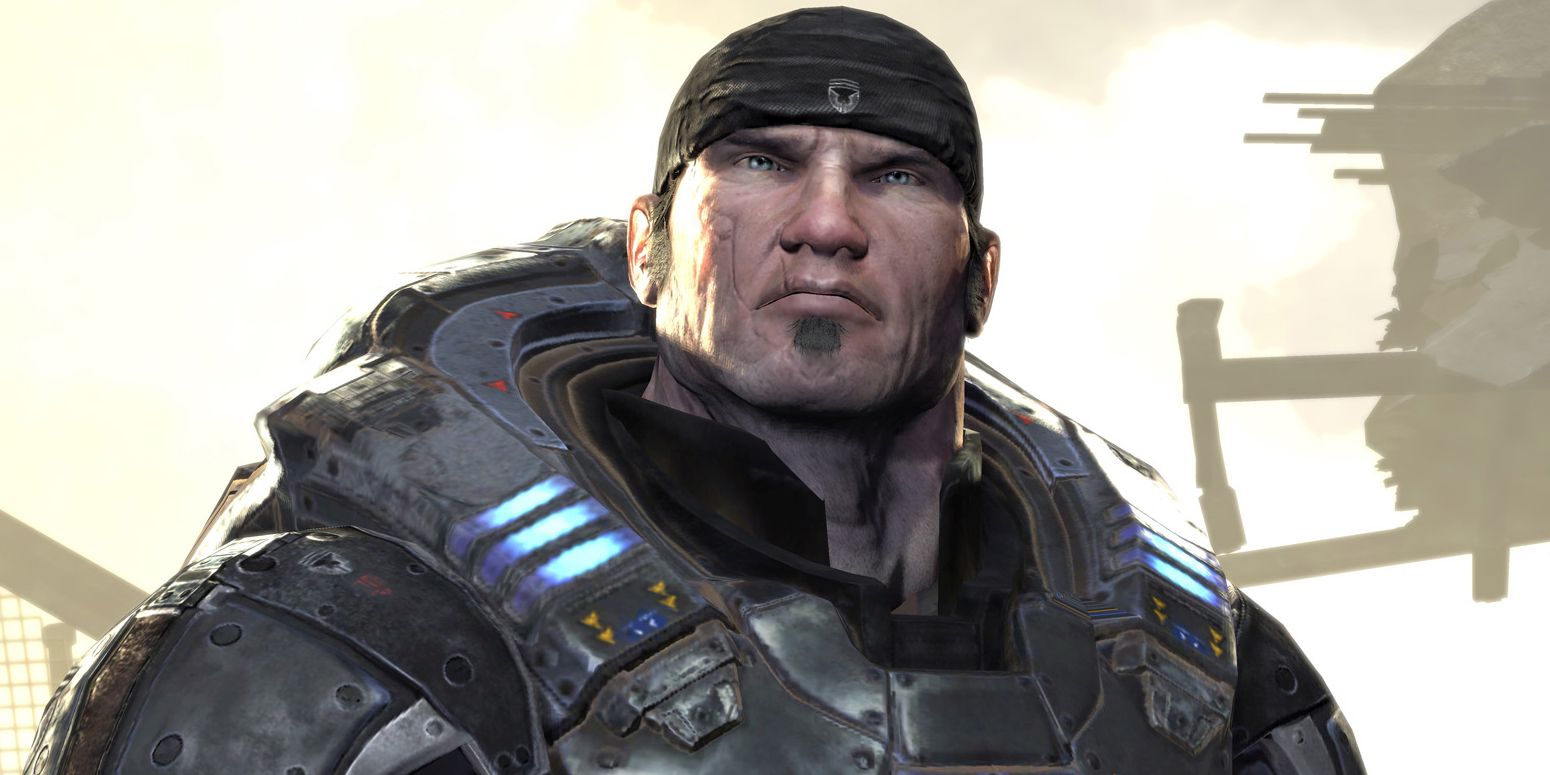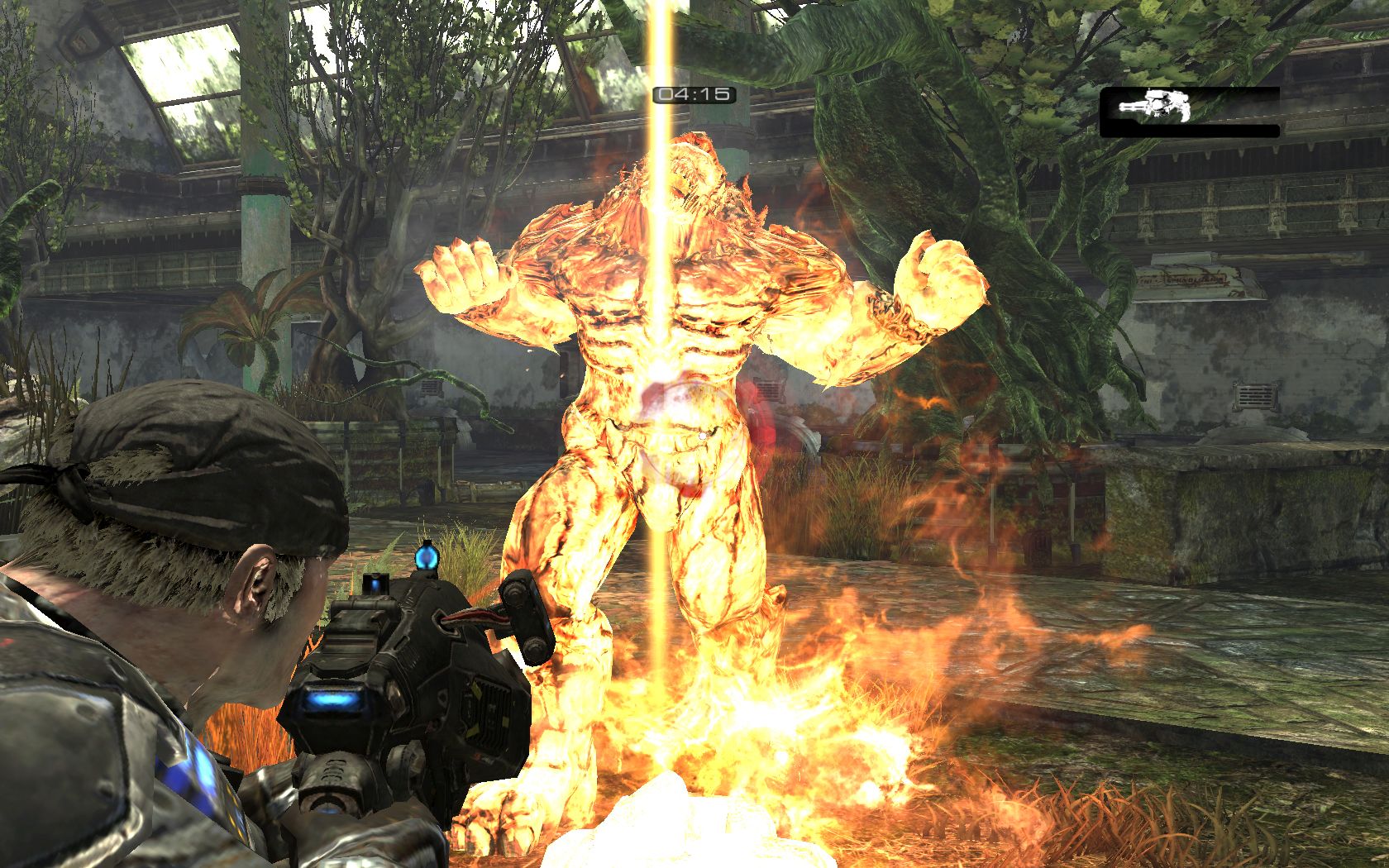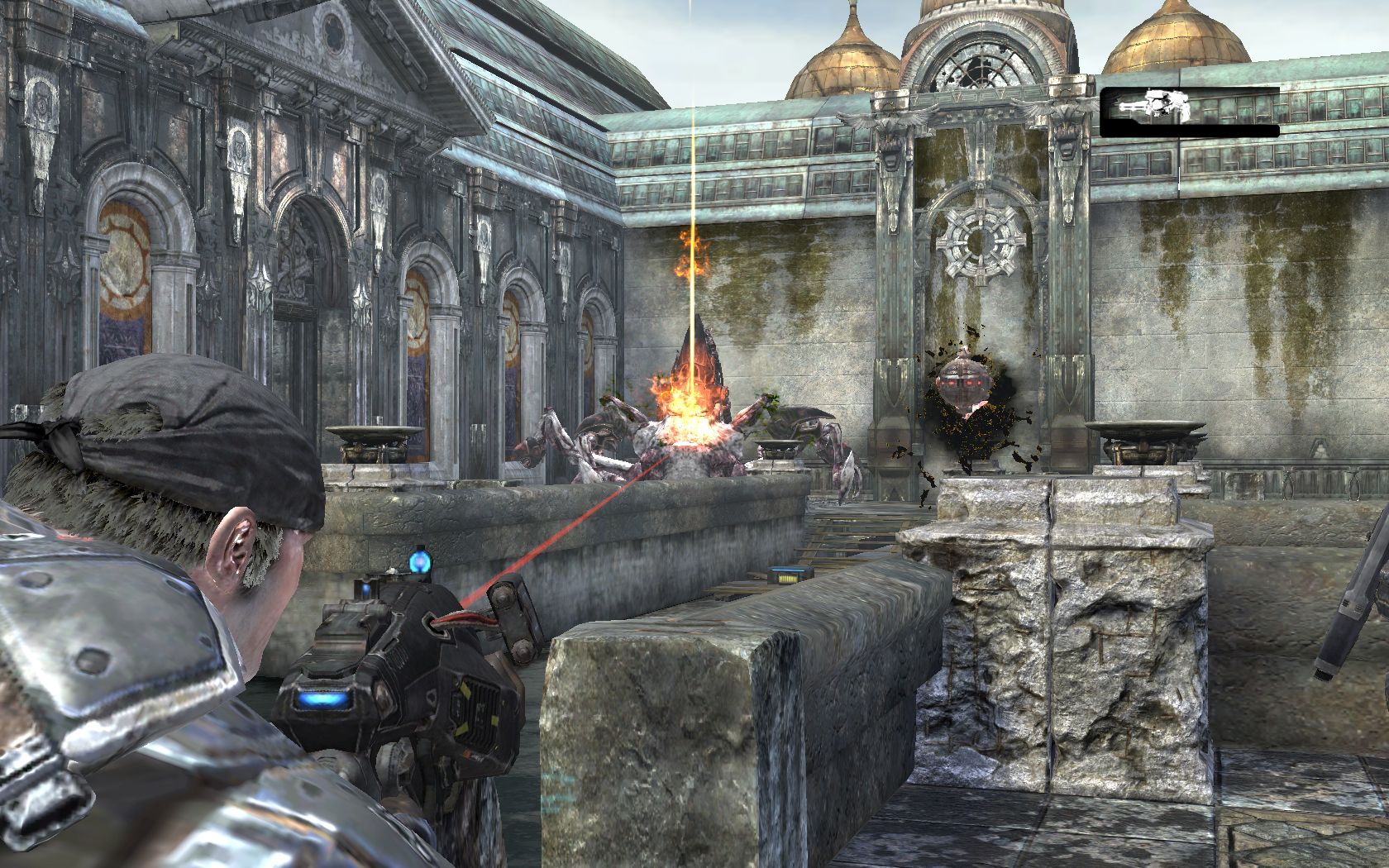The original Gears of War remains an uncomplicated good time
Jon Morcom returns to Epic's gritty grey shooter, where the aliens were plentiful and the marines wide as buses.

Playing the opening prison-breakout sequence of Gears of War for the first time back in 2007, my initial thoughts were that they'd overcooked the recoil—the aiming reticule was bobbing all over the place. Then I realised that my modestly specced off-the-shelf PC might be struggling, and the images on the screen were playing catch-up. Resolution and graphics settings adjusted, I hopped back into the action. It looked like cack but, nevertheless, a love affair was born.
Like older people who make a point of doing a Sudoku puzzle every day to maintain their mental acuity, I play through GoW every 18 months or so, just so I can reassure myself that my modest twitch skills haven't deserted me.
Shooters are often criticised for being linear, and GoW couldn't be any more so unless lead designer Cliff Bleszinski somehow jumped out of your PC, tied a rope through a ring in your nose, and led you through each level with an electric cattle prod hovering near your toilet area. But this is a good thing. Cut through all the macho bluster and there's an unadulterated simplicity to this fantastic romp that is refreshing; apart from kicking down the occasional door, arming some fuse boxes and rotating a handle or two, there’s not much else to do but pick up ammo, practise your action reload and shoot dead a fantastic assortment of plug-ugly enemies.
Having left his squad to search for his father following the cataclysmic events of Emergence Day, our tightly coiled spring of a hero Marcus Fenix is four years into a 40-stretch he got for desertion. Then he's 'pardoned' by hard-ass Colonel Victor Hoffman and released to help fight the Locust Horde. I'm guessing that even before he was sent down, Marcus was a somewhat feral, uncommunicative type; clearly, here is a man who never had a puppy when he was a child. Marcus's dialogue, growls and genuinely disturbing death-throe yelps are voiced brilliantly throughout by John DiMaggio, a man with a larynx so powerful he could gargle with cream crackers.
GoW's strengths are in the variation of its bestiary, its rolling, four-weapon slot loadouts, and its pacing, which constantly hovers somewhere between brisk and frantic. The AI is reasonably aggressive, so grubs will flank and engage you at close quarters if you don’t pop them first. The masochistic buzz this persistent tension brings to the action is amplified by the ever-present threat of wretches, who bound towards you like dopey Red Setters but with rather more deadly intent.
Apart from a few fussy bosses, GoW's combat is uncomplicated and satisfying. The longshot will give you a one-shot kill, while the gnasher will take out a wretch with a single blast. But nothing beats watching a boomer's head shoot skywards after a direct hit from the torquebow. The more workaday automatic weapons—the lancer and the hammerburst—require more finesse to control their clever, creeping-recoil effect, while the chainsaw bayonet on the former gives you a decisive edge in close combat.

Gears of War breaks up the corridor shooting with spectacular setpieces. Despite knowing all the visual and sound cues off by heart, I still feel genuinely tense when dealing with the blind but acute-of-hearing berserkers. The first encounter is a wonderfully contrived sequence in the Tomb of the Unknowns where your progress is barred by a series of three consecutive doors and a berserker who has just burst through a wall. Ideally, the game expects that you stand by each door in turn and taunt the berserker into a blind charge, then, like a bull-fighter, dodge away at the last moment, leaving the bellowing beast to knock the doors down for you.
Keep up to date with the most important stories and the best deals, as picked by the PC Gamer team.
But I find that approach too unnerving. Instead, the moment I get past the berserker, I have Marcus run off like a startled rabbit and underarm a grenade at each door in quick succession. It's cowardly, yes, but it does save you from getting clothes-lined.
The appearance of the kryll—bats with 'roid rage—as night falls in Act 2 produces an interesting feature; preying, as they do, on anything that moves in the shadows means that you're forced to illuminate a path for yourself by shooting at conveniently placed gas canisters. It's a clever touch that makes you stop and think more strategically for a time. Another great joy is the mantling and sliding cover system, the simple mastery and utilisation of which is essential to survival. Properly executed, it can lead to some wonderfully exhilarating, freeflowing firefights.

Despite having heard the game's intrasquad banter many times over, it can still provide a wry smile and the dialogue in general is pretty snappy; it certainly saves the incongruous 'junker' driving sequence, with irascible gas-station owner Chap, from being a total washout. That aberration aside, GoW marries great sound design with striking visuals, whether it's depicting ruined buildings, the imulsion mines below ground, or the rolling scenery and inky skies of its climactic speeding-train finale.
Although PC gamers were denied GoW's immediate sequel, we did receive extra love with this first instalment, and the addition of sequences involving Delta's encounters with the stompy brumak. GoW's many systems rub along together beautifully, creating a seamless, intense experience. Overall, the cutscenes never outstay their welcome and provide just the right amount of exposition, nudging along what little plot there is. I took six-and-a-half hours to complete this latest run-through, but I imagine that back in 2007 it would have taken me twice that, not least because I needed dozens of attempts to finish off the final boss, General RAAM. For the record, this time it took three goes. One day, I'm going to nail him first time.

